Greek Bougatsa: the Recipe for the Crunchy Custard Filled Phyllo Pastries

The Bougatsa is a typical Greek dessert, but it's also part of the Turkish tradition, characterized by a crunchy shell of phyllo pastry and a custard-based filling. The outer casing is made by overlapping several layers of phyllo dough sprinkled with butter, for a golden and crumbly result.
The filling is made of a sweet and delicate custard made from milk and semolina, flavored with a lemon zest. Once ready, the Bougatsa is dusted with icing sugar and cinnamon: it is usually eaten for breakfast, but it is also excellent as a dessert at the end of the meal, given its creamy and irresistible consistency.
There is also a savory version, filled with cheese or minced meat. For the success of the dessert, it is important to handle the phyllo dough with care, especially if you use a frozen one: in fact, they are thin and delicate sheets that could break during the preparation. You can buy the ready-made phyllo dough for greater convenience. The Bougatsa must be served on the same day it's made, to keep its crust crunchy and crumbly. If you like, you can replace lemon zest with the seeds of a vanilla bean.
Come find out how to make Greek Bougatsa following our step-by-step recipe and our advice.
Ingredients
How to Prepare Greek Bougatsa
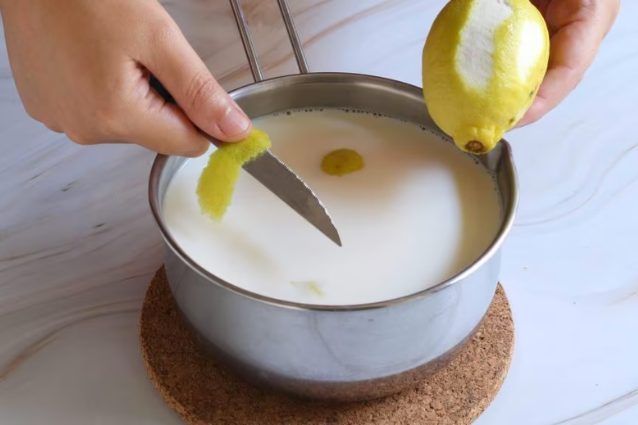;Resize,width=712;)
Pour the milk into a saucepan together with the sugar and the lemon zest. Place on the heat, stirring the mixture, and wait for it to boil.
Pour the milk into a saucepan together with the sugar and the lemon zest. Place on the heat, stirring the mixture, and wait for it to boil.
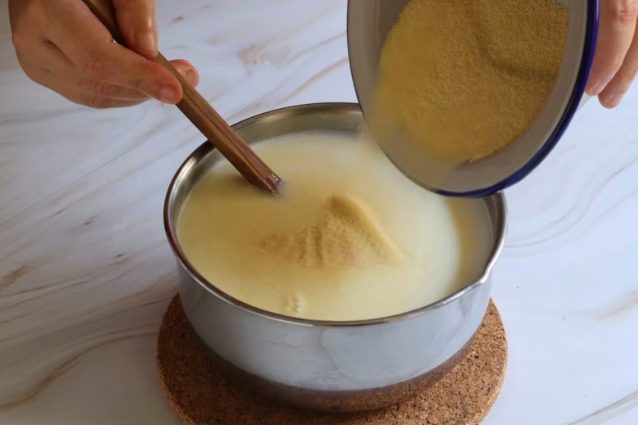;Resize,width=712;)
Pour the semolina slowly into the mixture and let it cook, continuing to stir over a very low heat for about ten minutes, until you see and feel the cream begin to thicken.
Pour the semolina slowly into the mixture and let it cook, continuing to stir over a very low heat for about ten minutes, until you see and feel the cream begin to thicken.
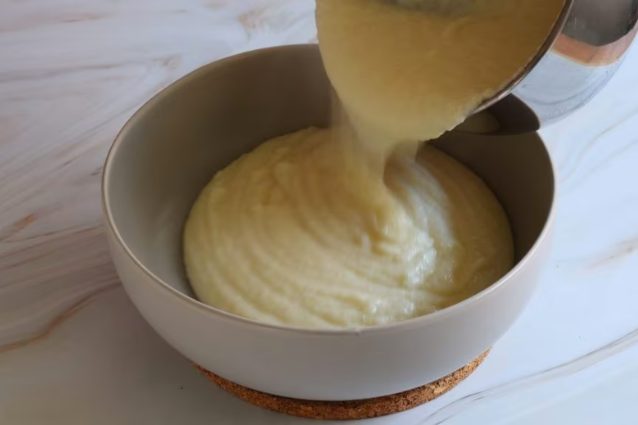;Resize,width=712;)
Remove the lemon zest from the cream, and pour it into a large, roomy bowl.
Remove the lemon zest from the cream, and pour it into a large, roomy bowl.
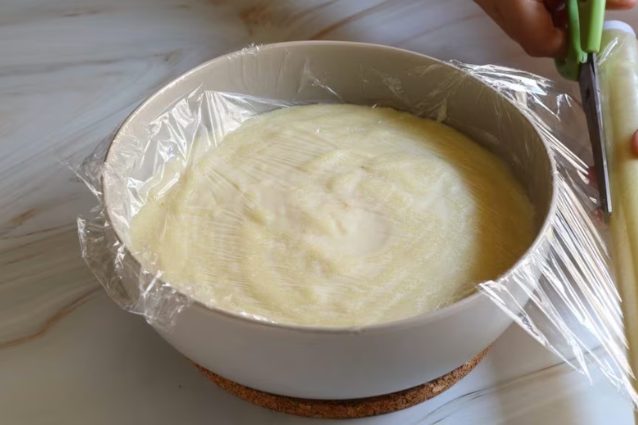;Resize,width=712;)
Cover with contact film, and let it cool.
Cover with contact film, and let it cool.
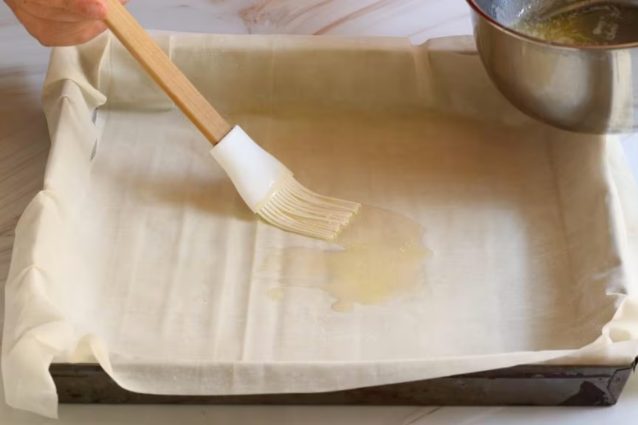;Resize,width=712;)
Line a 20x30 cm (7x11 inches) baking tray with a sheet of baking paper, then place the first sheet of phyllo pastry at the base and brush it with melted butter. Proceed in the same way, overlapping another 3 sheets of phyllo dough, buttering all of them.
Line a 20×30 cm (7×11 inches) baking tray with a sheet of baking paper, then place the first sheet of phyllo pastry at the base and brush it with melted butter. Proceed in the same way, overlapping another 3 sheets of phyllo dough, buttering all of them.
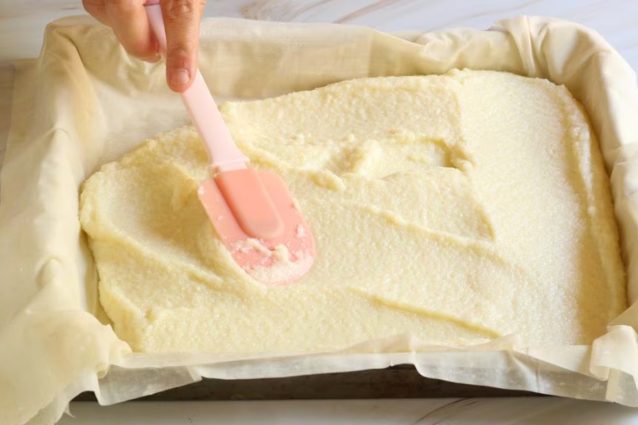;Resize,width=712;)
Let the excess pastry overflow, because you will need it to close the dessert up. Fill with the custard, helping yourself with a spatula, to cover the entire baking pan evenly.
Let the excess pastry overflow, because you will need it to close the dessert up. Fill with the custard, helping yourself with a spatula, to cover the entire baking pan evenly.
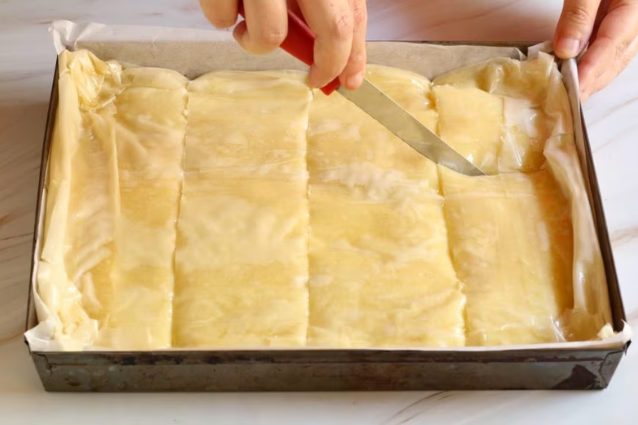;Resize,width=712;)
Cover the cake with another 4 sheets of phyllo pastry, buttered and overlapping each other. Then fold the excess edges inwards, also buttering them. Once the cake is closed, using a pointy knife, cut the cake outlining 12 portions.
Cover the cake with another 4 sheets of phyllo pastry, buttered and overlapping each other. Then fold the excess edges inwards, also buttering them. Once the cake is closed, using a pointy knife, cut the cake outlining 12 portions.
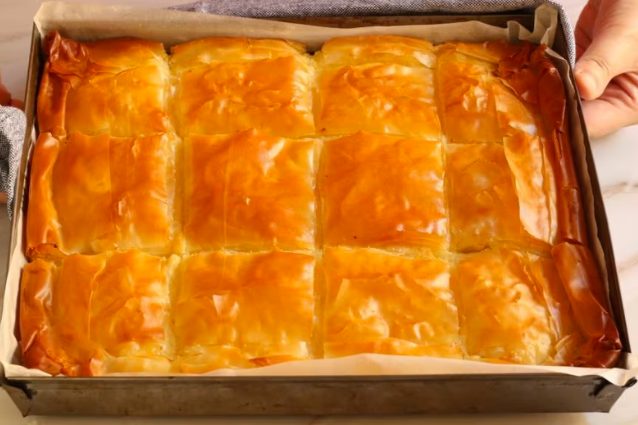;Resize,width=712;)
Cook in a preheated static oven at 180°C for about 20 minutes, or until golden brown. Then remove from the oven and let cool.
Cook in a preheated static oven at 180°C for about 20 minutes, or until golden brown. Then remove from the oven and let cool.
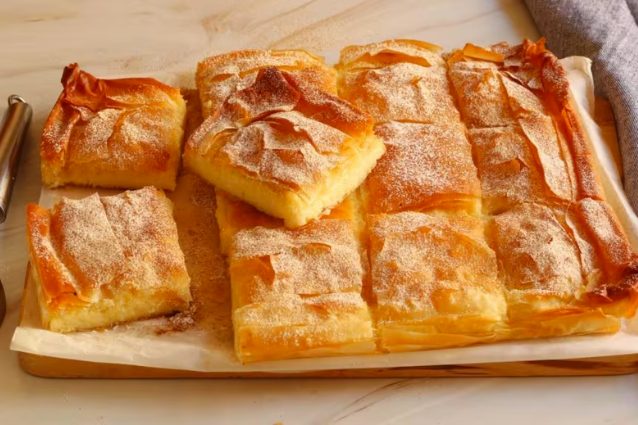;Resize,width=712;)
Sprinkle the Greek Bougatsa with icing sugar mixed with cinnamon, cut and serve.
Sprinkle the Greek Bougatsa with icing sugar mixed with cinnamon, cut and serve.
Advice and How to Store your Greek Bugatsa
You can also make the Greek Bougatsa cream by adding eggs and cow's milk ricotta: heat 1 liter of milk in a saucepan with the lemon zest; in a separate bowl, beat two eggs with 200 grams of sugar, 100 grams of ricotta and 80 grams of semolina; put the mixture in a saucepan and add the hot milk slowly, stirring the ingredients; bring to a boil and continue stirring until you obtain a smooth, thick cream.
You can store the Greek Bougatsa for a maximum of 1 day, possibly outside of the refrigerator, otherwise the phyllo pastry would lose its crunchiness.
;Resize,width=767;)

;Resize,width=712;)
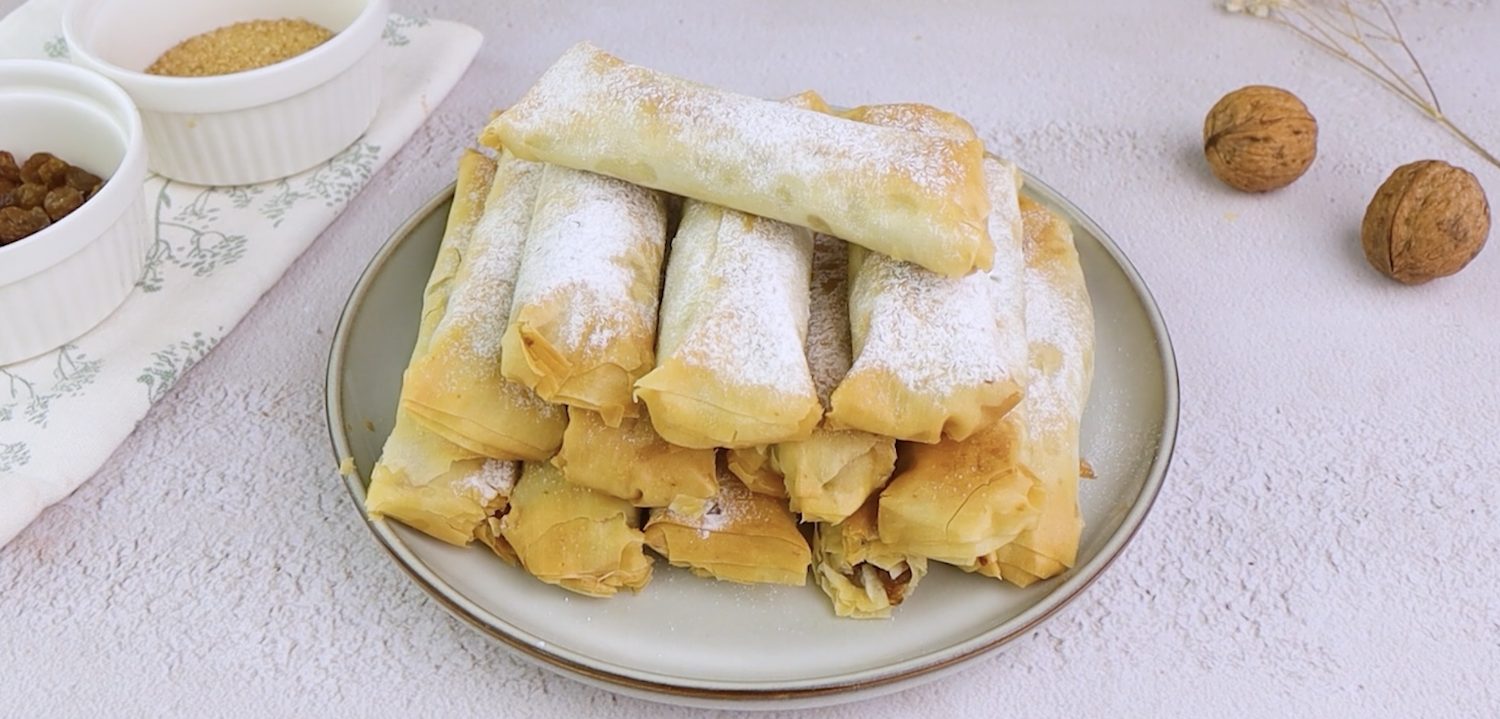;Resize,width=712;)
